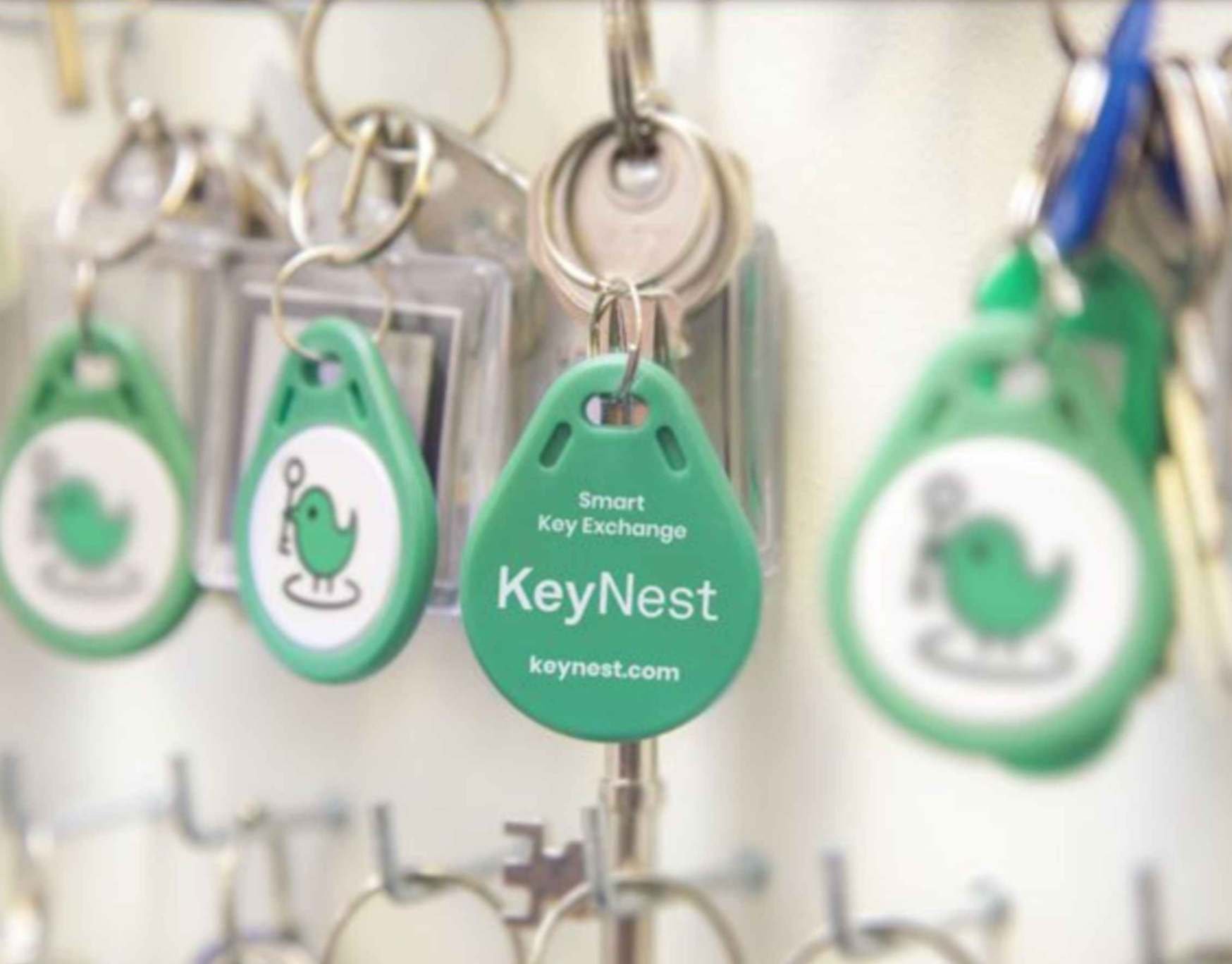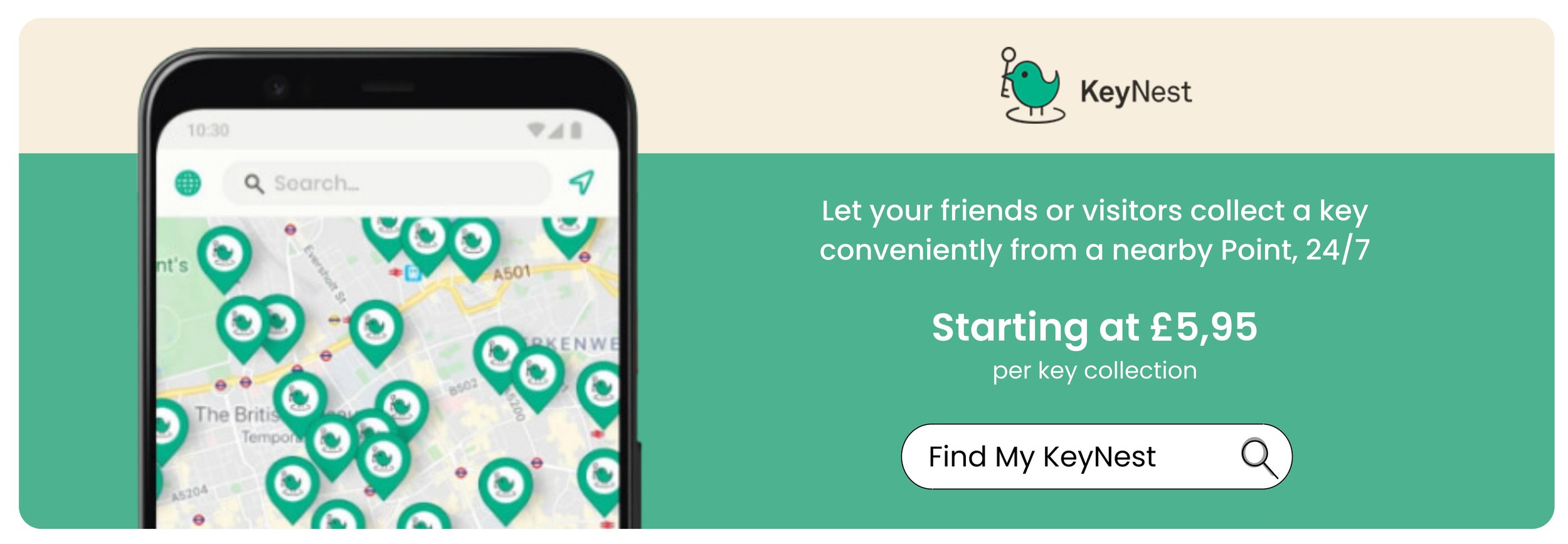Over 1500 key exchange locations nationwide
2025 Host Guide: Airbnb Regulations At Edinburgh
Airbnb has transformed how travelers experience Edinburgh’s historic charm and vibrant culture but hosting in the city requires navigating a complex web of regulations. City Of Edinburgh Council has introduced stricter rules to address the housing shortage and preserve the quality of life for residents. From licensing to safety compliance, hosts need to stay informed to avoid hefty fines.
Are you aware of the new requirements for short term let new licensing in Edinburgh? What about to apply for planning permission and how zoning laws might impact your listing? Knowing the new rules doesn’t just protect you legally and the existence of your accommodation; it ensures smooth operations and builds trust with guests especially in short-term let control area. As regulations evolve, it’s more important than ever to stay ahead in order to have a smooth experience to apply for a licence whether your are a new operator or existing one.
In this article, we’ll explore everything you need to know about Airbnb regulations in Edinburgh. From local authorities licensing requirements to practical tips, we’ll ensure you’re well-prepared to succeed as a host in 2025.
Understanding Short-Term Let Licensing In Edinburgh
The Edinburgh short-term let licensing scheme is a game changer for hosts. This new system mandates regulations that all lets in Edinburgh must apply a license to operate legally. The process involves meeting safety standards, adhering to short-term let accommodation zoning rules and ensuring compliance with local policies due to the increase number of Airbnb guests visiting.
Without a license, your listing and guests who booked on Airbnb could face penalties or even removal from Airbnb’s platform in Edinburgh. Navigating this process might seem daunting, but it’s a necessary step for all hosts. Staying proactive will save you time and avoid future complications.
Major Insights To Know For Operators In Edinburgh:
A short-term let license is mandatory for all Airbnb properties in Edinburgh.
Safety standards for operators of short-term lets shall include fire alarms, carbon monoxide detectors and escape routes.
Short-term lets in Edinburgh must comply with zoning laws and demonstrate property suitability.
Properties in tenement buildings may face stricter approval criteria as part of new regulations.
Annual license renewal ensures ongoing compliance with updated regulations.
Navigating Zoning And Planning Permissions
Navigating the new licensing scheme, zoning laws and planning permissions significantly impact Edinburgh Airbnb hosts. The city enforces strict guidelines to balance residential living and tourism rentals in Edinburgh by carefully vetting application for short-term let lays. Properties in heritage or conservation areas may face additional scrutiny requiring more documentation in obtaining a short-term let approval.
Understanding your property’s zoning classification is critical for avoiding costly mistakes. For new hosts, consulting the Edinburgh City Council’s resources can clarify whether planning permission is necessary.
Zoning And Planning Permission Key Insights:
Hosts in heritage or conservation zones may require extra permissions.
Zoning laws distinguish between primary residences and holiday lets.
Planning permission is mandatory for new listings in certain areas.
Existing listings might need retroactive approval to comply with regulations.
Ignoring zoning rules can lead to penalties or listing removal.
How Can I Apply For Planning Permission For Airbnb In Edinburgh?
Applying for planning permission for an Airbnb in Edinburgh involves several important steps. The process begins with determining if your property requires permission, which is often the case for short-term lets in designated areas or shared buildings.
Online planning applications for short-term lets are available from the Edinburgh Council Portal, where you’ll need to provide detailed information about the property, its intended use, and any proposed changes. Supporting documents, such as floor plans and photographs, are essential to demonstrate compliance with zoning and safety regulations.
Once submitted, the application undergoes a review process, which may include public consultations or feedback from local planning officers. Approval times vary, but hosts should prepare for a wait of several weeks or even months. To make its decision, the Council will take into account "The Development Plan" and any other "material considerations" relevant to the application.
As a result of your application, neighbouring property owners and occupiers (all within 20 metres of the property) will be notified. Staying proactive and ensuring your application is thorough increases your chances of a successful outcome.
Key Takeaways:
Determine if Permission Is Needed: Check if your property requires planning permission for short-term lets listed on Airbnb.
Submit Online Application: Use the Edinburgh City Council’s portal to provide property details and intended use for short-term basis.
Prepare Supporting Documents: Include floor plans, photographs, and any other relevant information.
Account for Review Process: Expect public consultations or feedback from planning officers during the review period.
Be Prepared for Approval Timelines: Processing can take weeks or months, so plan ahead or proceed to Edinburgh council's consultation to know more.
How Much Does Planning Permission Cost In Edinburgh?
For Airbnb hosts in Edinburgh, planning permission can be a critical and often unavoidable expense. The cost of planning permission varies depending on the type of application and the nature of the property. For residential properties being converted into short-term lets, hosts can expect fees to start at around £300 for a basic application.
However, properties located in conservation areas or heritage zones may require additional documentation, which can increase costs. Engaging professional services, such as architects or planning consultants, adds another layer of expense but often ensures smoother approval.
It’s important to factor these costs into your overall hosting budget to avoid surprises down the line.
Important Things To Consider For The Cost:
Basic Application Fees: Expect planning permission fees to start around £300.
The Edinburgh Council charges a fee for applications. According to the property's gross floorspace, the fee will vary:
Up to 100 m² – £600
Between 100 – 4000m² – £600 plus £600 for every 100 m² up to 4000 m²
More than 4000 m² – £24,000 plus £300 per 100 m² metres above 4000 m²
Additional Costs in Special Zones: Heritage or conservation areas may require extra approvals, raising the total cost.
Professional Assistance: Hiring architects or planning consultants can streamline the process but adds to expenses.
Associated Fees: Legal notices or public consultations may incur additional charges.
Budgeting for Unexpected Costs: Always allocate extra funds for unforeseen requirements during the process.
Tax Obligations For Edinburgh Airbnb Hosts
Tax compliance is another essential responsibility for Airbnb hosts in city of Edinburgh council's tax. Income generated from short-term lets must be reported to HMRC. Additionally, properties used for Airbnb may be subject to business rates instead of council tax.
Knowing what expenses can be claimed as deductions helps hosts manage their finances efficiently. Staying on top of your tax obligations ensures peace of mind and avoids legal troubles.
Key Tax Insights:
Airbnb income must be declared on self-assessment tax returns.
Properties operating as businesses may pay business rates, not council tax.
Allowable deductions include maintenance, cleaning, and utility bills.
VAT applies if total income exceeds the registration threshold.
Accurate record-keeping is vital for tax audits.
Common Challenges Airbnb Hosts Face In Edinburgh
Edinburgh’s Airbnb hosts face unique challenges due to the city’s stringent regulations and high demand. Managing guest expectations while complying with laws can be a balancing act. Noise complaints, especially in shared buildings, are a common issue.
Additionally, navigating licensing and planning permissions can be time-consuming. Hosts need to prepare for these challenges to maintain successful and compliant operations.
Key Insights:
Noise complaints are frequent, especially in residential areas.
Tenement and shared properties often face stricter approval criteria.
Navigating licensing and planning permissions can be complex.
Balancing guest satisfaction with regulatory compliance is challenging.
Legal updates require constant attention from hosts.
Why Staying Updated On Edinburgh’s Regulations Matters
Edinburgh landlord regulations evolve rapidly and staying updated for any properties providing short-term accommodations are essential for hosts. Keeping informed about legal requirements and the process for short-term lets operators not only avoids fines but also builds credibility with guests.
The city council frequently revises policies to address emerging challenges like over-tourism and housing shortages. Proactive hosts who adapt to changes ensure their listings remain competitive. Leveraging local resources and joining host communities can make staying updated easier.
Key Takeaways:
Regulations evolve to address housing shortages and community concerns.
Staying updated protects hosts from fines and legal complications.
Adapting to changes enhances guest trust and listing performance.
Local councils and forums provide valuable resources for hosts.
Proactive compliance ensures long-term success in hosting.
Final Thoughts
Understanding Airbnb regulations in Edinburgh is vital for navigating the city’s competitive short-term rental market. From obtaining licenses to managing taxes, hosts face a myriad of responsibilities. Planning permissions and zoning laws further complicate the process, especially in heritage areas.
Compliance not only safeguards your listing but also fosters trust with neighbors and guests. Staying informed about regulatory updates ensures you’re always ahead of the curve. Proactively addressing challenges like noise complaints or guest disputes enhances your hosting experience.
Edinburgh’s regulations are designed to balance tourism and community interests, and adapting to them is crucial. By following these guidelines and leveraging resources like KeyNest PRO, you can achieve long-term success as an Airbnb host in Edinburgh.
About Us: KeyNest
It is vital for any hosts to sustain an efficient key management access to ensure your listing gets maintained in the Airbnb platform. That is why KeyNest, a leading smart key exchange service, is designed to simplify and secure the management of property access for hosts, property managers, and guests. With a network of thousands of partner locations worldwide, KeyNest ensures that keys are safely stored and easily accessible 24/7, providing a seamless solution for short-term rental hosts, including those on platforms like Airbnb.
Since its inception, KeyNest has revolutionized how property access is handled, eliminating the need for in-person handovers and providing an efficient alternative to traditional lockboxes or smart locks. Trusted by property managers across the globe, KeyNest's robust system ensures keys are always secure while maintaining accessibility.
Want to know more about KeyNest?
KeyNest offers you a convenient service for storing and exchanging your property keys. You can drop off a key at any of the 7,000+ locations in our network, so there’s one such Point located next to your property.
Guests, cleaners or contractors can then collect the key securely from a KeyNest Point or KeyNest Locker which is usually open 24/7. You'll be notified each time the key is picked up or returned, and you can even customize check-in and check-out times. By leveraging technology and a global network of locations, KeyNest continues to redefine property management, offering solutions tailored to meet the evolving needs of the rental market..
KeyNest has an ever-expanding global network of locations located just minutes from your property. To find out more you can contact us.
Neil Beltran 27 December 2024




